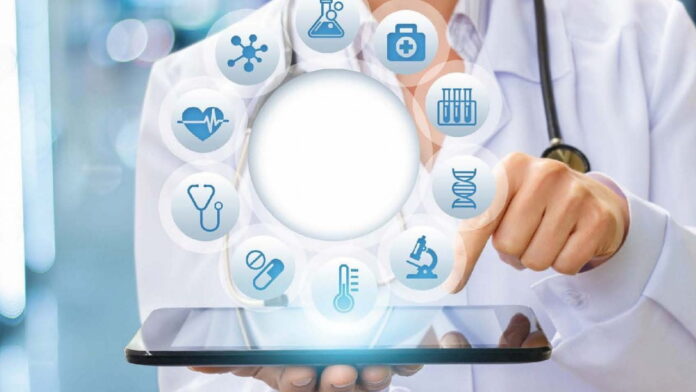Life sciences and their study are instrumental to the human experience. As individuals, we can often take for granted the various impacts of technological and scientific breakthroughs on our quality of life, whether the treatment of the water that comes from our taps or the quality of complex medicines we take to treat illness.
Life sciences, as a conglomerate field, encompass all manner of human and biological fields. Scientists, healthcare systems, tech start-ups and charitable organisations all fit within life sciences to improve quality of life and seek meaningful contributions. What are some of the larger breakthroughs in life science that we have seen recently?
AI and Drug Development
Artificial Intelligence, or AI, has been receiving a great deal of publicity in recent years, as commercial AI models have demonstrated the sheer rate of progress in the field. This rate of progress is reflected in life science just as well as in other industries, with AI models working to dramatically accelerate the development of pharmaceutical products. AI is currently being used to explore protein structures at speed, in order to expedite the design of new and effective drugs for different conditions.
AI is a unique development on a wider level, and one which many believe to be the heralding of a new technological revolution. In terms of life science, and in practical terms, AI has some way to go – and also presents some intriguing legal issues for those in the medical or pharmaceutical sector. The ‘black box’ functionality of many AI systems can also make it difficult for researchers and practitioners to fully understand how conclusions are drawn, introducing a new form of uncertainty alongside the potential for breakneck progress.
Aging Clocks
One of life sciences’ greatest puzzles has been that of the human life-span – specifically, what exactly contributes to its length, and how we might extend it. This breakthrough indirectly addresses this puzzle, through expanding our understanding of the way lifespans can be metrically investigated.
The term ‘aging clock’ describes a biological mechanism that can be used to accurately ‘date’ a person. Multilateral development in the field has been instrumental in improving understanding of the metrics behind biological deterioration, and also improving predictions for future illness and infirmity. Further development of understanding using an accurate aging clock can also assist in the development of life-extending treatments.
A Vaccine for Malaria
Malaria is a devastating disease, and one that has had a profound impact on populations around the world. The disease, delivered via mosquito bite, has been responsible for millions upon millions of deaths, with nearly 250 million cases reported each year. The mitigation of malaria impacts is one of the prevailing global challenges of our time, despite limited cultural or media discussion around the subject.
But private enterprises, publicly-funded bodies and many other organisations within life sciences have been hard at work on the problem, and the holy grail is now potentially at hand: a vaccine. Malaria is a parasitic disease as opposed to a viral or bacterial one, making vaccination a unique problem – but one that has been uniquely solved.
Read Also
- Automated Healthcare Software Solutions: How Intelligent Platforms Are Redefining Clinical, Administrative, and Operational ExcellenceThe healthcare industry is undergoing a seismic transformation. Rising patient volumes, value-based care models, staffing shortages, and complex regulatory demands have prompted organizations to look beyond traditional tools and embrace advanced software automation. As providers search for innovative partners capable of tailoring these sophisticated systems to real-world workflows, many turn to MCSI (Managed Care Systems,… Read more: Automated Healthcare Software Solutions: How Intelligent Platforms Are Redefining Clinical, Administrative, and Operational Excellence
- Why Whole Slide Imaging Shapes the Future of Digital PathologyWhole slide imaging has become one of the most important developments in modern pathology. It changes how tissue is examined, how cases are shared and how pathologists collaborate with the wider care team. More than a technological upgrade, it represents a shift in how laboratories think about their workflow, their storage needs and the tools… Read more: Why Whole Slide Imaging Shapes the Future of Digital Pathology
- Comparing 2025 Dental Practice Management Software OptionsSoftware Key Strengths Potential Limitations Best For Dentimax • Offers both cloud-based and on-premise/server deployment. • Tight integration between imaging (e.g. X-ray sensors) and practice management, charts, treatment planning, imaging all in one. • Transparent pricing and relatively simple UI/usability; solid for small to medium general practices. • May lack some of the… Read more: Comparing 2025 Dental Practice Management Software Options
- Top Innovations in Dermatology and Skincare TechnologiesHave you ever wondered how skincare keeps getting better year after year? From fighting acne to reducing wrinkles, today’s treatments seem more advanced than ever before. The tools and techniques used by dermatologists today are smarter, safer, and more effective than those we had just a few years ago. These breakthroughs don’t just help with… Read more: Top Innovations in Dermatology and Skincare Technologies
- Telehealth and Beyond: Building a Connected Continuum of CareHealthcare is on the verge of a radical transformation. Technology no longer simply supports medicine; it actively shapes how care is delivered and experienced. Achieving a seamless continuum demands more than deploying tools—it requires intentional design, coordinated teamwork, and innovative platforms that adapt to diverse clinical and patient needs. This article explores key strategies for… Read more: Telehealth and Beyond: Building a Connected Continuum of Care
- Optimizing CT Protocols: The Hidden Key to Efficiency and Cost Savings in RadiologyIntroduction: Why CT Protocol Optimization Matters Computed Tomography (CT) is a cornerstone of modern diagnostic imaging, providing critical information across nearly every medical specialty. However, maximizing the value of CT — both clinically and financially — requires more than just advanced hardware. The real secret lies in the optimization of CT protocols. When CT protocols… Read more: Optimizing CT Protocols: The Hidden Key to Efficiency and Cost Savings in Radiology







